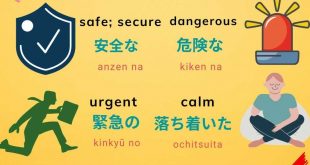Japanese topsy-turvy words
Let’s learn Japanese words that are easily mistaken in the process of learning vocabulary.

日本 (にほん) : Japan
本日 「ほんじつ) : today
花火 (はなび) : fireworks
火花 (ひばな) : spark
一万 (いちまん) : ten thousands
万一 (まんいち) : unlikely event, one in 10.000 chance
会社 (かいしゃ) : company
社会 (しゃかい) : society
女子 (じょし) : girl
子女 (しじょ) : sons and daughters
下手 (へた) : unskillful
手下 (てした) : subordinate, henchman
父親 (ちちおや) : father
親父 (おやじ) : one’s father, old man
途中 (とちゅう) : on the way, midway
中途 (ちゅうと) : in the middle, half-way
階段 (かいだん) : stairs
段階 (だんかい) : level, phase
会議 (かいぎ) : conference, meeting
議会 (ぎかい) : congress, parliament
現実 (げんじつ) : reality, true fact
実現 (じつげん) : realization, materialization
海上 (かいじょう) : marine, by/at/on sea
上海 (しゃんはい) : Shanghai
苦痛 (くつう) : pain, agony
痛苦 (つうく) : anguish
関連 (かんれん) : relation, relevance
連関 (れんかん) : relation, linkage
形象 (けいしょう) : shape, figure
象形 (しょうけい) : hieroglyphics
栄光 (えいこう) : glory
光栄 (こうえい) : honour, privilege
対応 (たいおう) : response, compatibility, dealing with (situation, etc.)
応対 (おうたい) : dealing with (customers, visitors, etc.)
送別 (そうべつ) : farewell, send-off
別送 (べっそう) : separate shipment (of mail)
蜂蜜 (はちみつ) : honey
蜜蜂 (みつばち) : honeybee
Related Post:
1000 Most Common Japanese Words – Part 1
Japanese Adverbs of Time
 Nihongo Nihongo
Nihongo Nihongo







